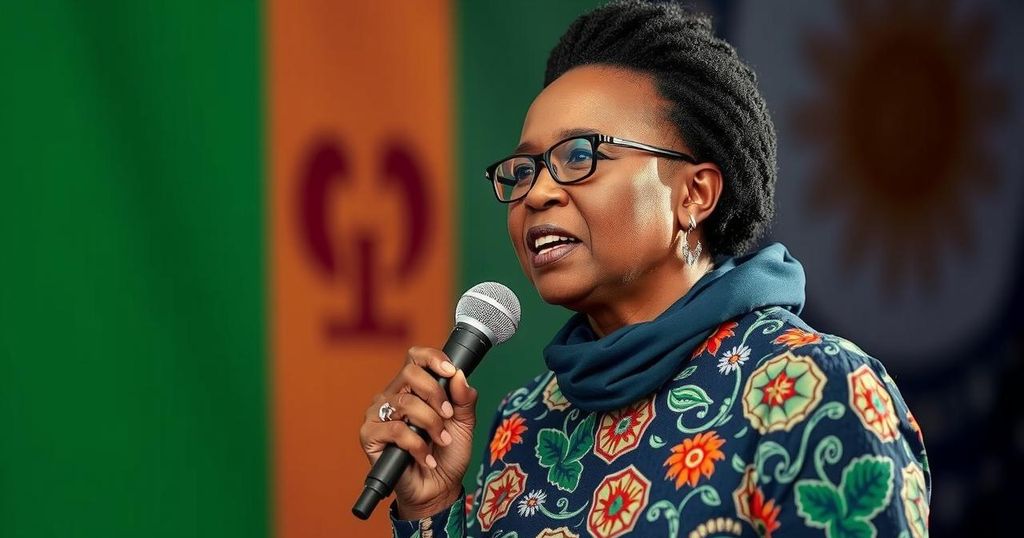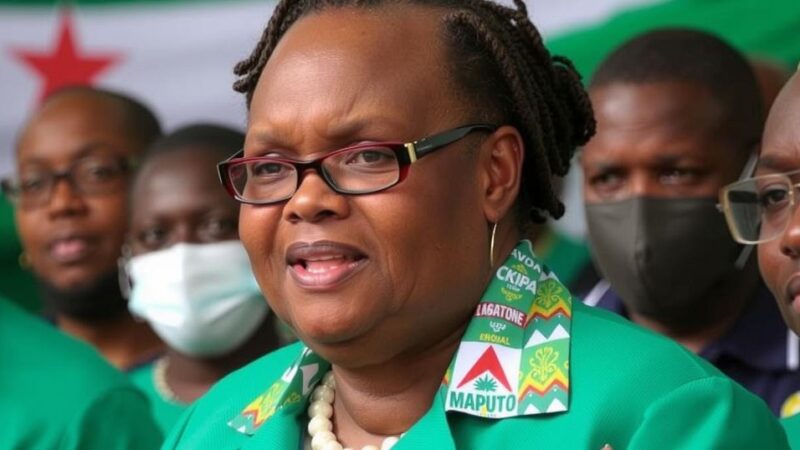Namibia’s Vice President Netumbo Nandi-Ndaitwah may become the first female president on Wednesday, with about 1.4 million voters registered. SWAPO, her party, has experienced losses due to corruption allegations and must adapt to retain support, especially from younger generations. Nandi-Ndaitwah aims to create jobs and address women’s issues, amid intense electoral competition.
Namibia stands at a historic crossroads as it prepares for presidential elections where Vice President Netumbo Nandi-Ndaitwah may become the nation’s first female president. As elections approach this Wednesday, approximately 1.4 million Namibians have registered to vote, competing across 15 political parties, including Nandi-Ndaitwah’s South West Africa People’s Organization (SWAPO), which has struggled to maintain its prior dominance in the political landscape. Although SWAPO initially appeared favored to win following positive early poll results, the party has faced criticism due to allegations of corruption in the fishing sector, which has diminished its longstanding support. Political analyst Henning Melber emphasizes the necessity for SWAPO to regain trust, particularly among younger voters who prioritize effective governance over historical loyalties.
Nandi-Ndaitwah, 72, has proposed ambitious job creation plans, aiming to allocate approximately 85 billion Namibian dollars ($4.7 billion) over five years to generate over 500,000 new jobs amidst a troubling 20% unemployment rate among youth. This marks a pivotal issue in ensuring her appeal resonates, targeting socio-economic relief that addresses pressing concerns, especially for female voters regarding healthcare, reproductive rights, and equal pay. Should she succeed in her presidential ambitions, she would join the ranks of pioneering female leaders on the continent, following figures such as Ellen Johnson Sirleaf of Liberia and Joyce Banda of Malawi. Political experts advocate that should she ascend to the presidency, she must lead with integrity, seeking to enhance female representation in governance and policy-making across Namibia’s political terrain.
The broader context of this electoral contest reveals a significant shift in southern Africa’s political dynamics, with other nations like South Africa and Mauritius experiencing unprecedented electoral outcomes that reflect changing public sentiment. As the SWAPO party prepares for intense competition from figures such as Panduleni Itula and Job Amupanda, the outcome of this election holds implications for both Namibia’s national direction and the broader regional landscape.
The upcoming presidential election in Namibia is a significant event, as it could lead to the election of the country’s first female president, Vice President Netumbo Nandi-Ndaitwah. Having governed since its independence in 1990, SWAPO’s recent electoral struggles have brought issues of legitimacy and corruption to the forefront of public discussion. The upcoming elections represent a crucial moment for change, particularly in engaging younger voters who may be disenchanted with the traditional political strategies. Nandi-Ndaitwah’s candidacy highlights the importance of promoting gender equality in Namibian politics, with specific attention to women’s rights and social issues that resonate with a broader electorate in the face of economic challenges.
In summary, the forthcoming elections in Namibia promise not only to potentially empower the nation with its first female president but also to reshape its political landscape in the wake of recent challenges. Vice President Nandi-Ndaitwah’s candidacy positions her at the forefront of economic and social reform, necessitating a focus on effective governance to attract a younger demographic. As political dynamics evolve in southern Africa, the outcomes of these elections may signal critical developments for both Namibia and the region.
Original Source: abcnews.go.com







